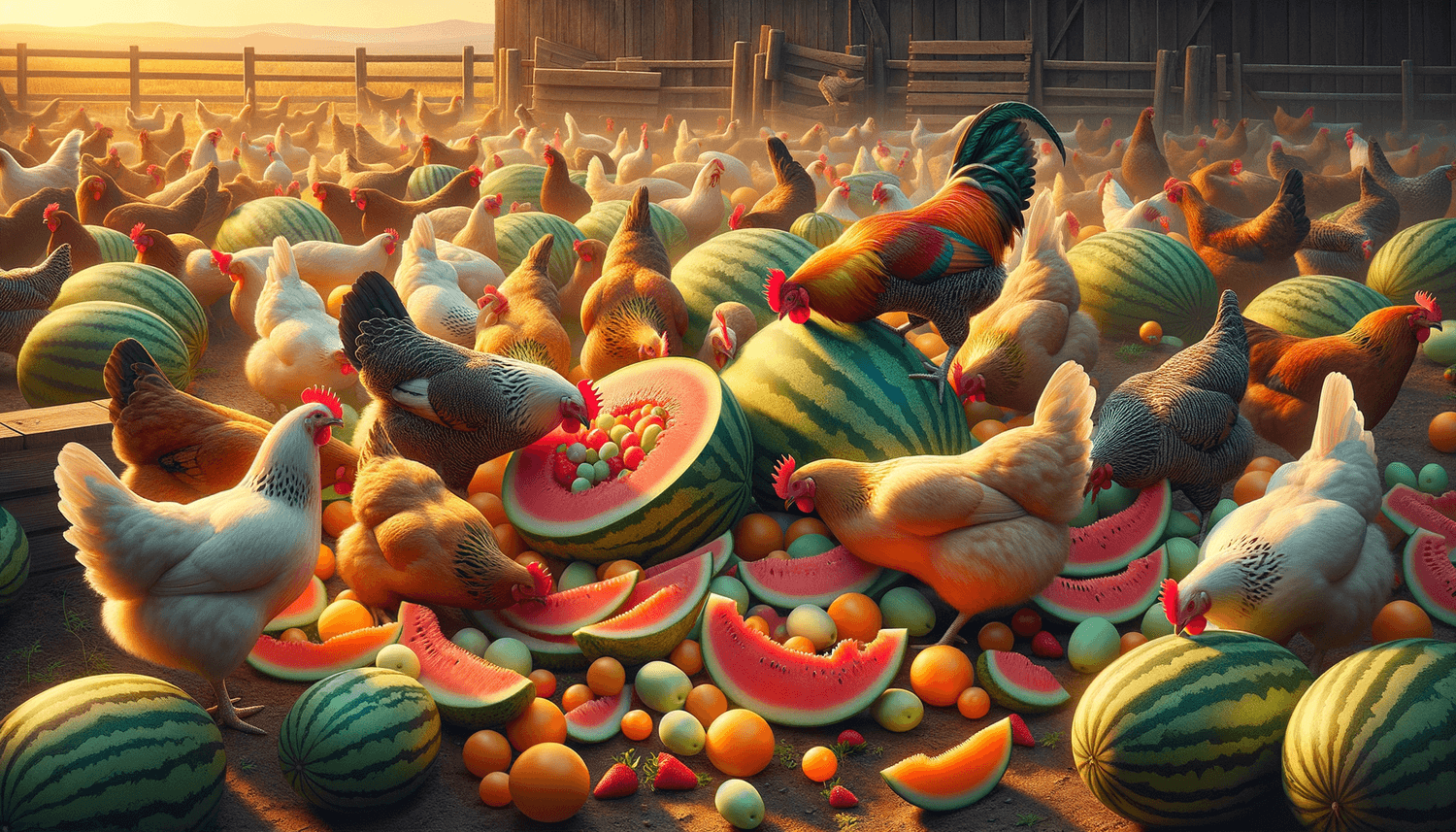Yes, chickens can eat melons. Melons are a nutritious and hydrating treat for chickens, offering a source of vitamins, minerals, and water. However, they should be given in moderation as a supplement to a balanced diet.
Quick Summary
- Chickens can eat melons.
- Melons provide hydration and essential nutrients but should be a supplemental treat.
- Key benefits include hydration and nutrient intake; risks include potential overconsumption disrupting a balanced diet.
- Feed melons in small amounts, ensuring the chickens also have a complete and balanced diet.
Overview of Melons
Melons are juicy, sweet fruits commonly enjoyed in the summer. They are a good source of vitamins A and C, as well as potassium and dietary fiber. The high water content in melons also makes them an excellent treat for hydration, particularly on hot days.
Benefits and Risks of Melons for Chickens
Chickens can benefit from the vitamins and hydration provided by melons. The fruit’s sweetness can also encourage fussy eaters. However, too much melon can lead to an unbalanced diet, obesity, or diarrhea due to the high sugar and water content. The seeds should be removed as they could pose a choking hazard.
Feeding Guidelines
Offer melons in moderation, as an occasional treat. Remove seeds, cut the melon into small, peckable pieces, and ensure it does not make up more than 10% of your chickens’ diet. Always remove any uneaten melon after a few hours to prevent attracting pests or mold growth.
Alternatives
If you choose not to feed melons to your chickens, other hydrating treats include cucumbers, berries, or leafy greens, which are all healthy in moderation.
Expert Opinions
Poultry nutritionists and veterinarians recommend offering a variety of fruits and vegetables as treats to complement chickens’ primary diet of balanced feed. Studies have shown that dietary variety can increase foraging behavior and improve welfare in backyard flocks.
Frequently Asked Questions
After learning about the feasibility of feeding melons to chickens, you might have some additional questions. Here are some common queries:
How much melon can I safely feed my chickens?
Chickens should eat melon sparingly. It’s a treat, not a staple. Ensure it comprises no more than 10% of their overall diet to maintain nutritional balance.
Are the seeds of melons safe for chickens?
It is best to remove melon seeds before feeding them to your chickens, as they can be a choking hazard and may contain trace amounts of toxins harmful to chickens in large quantities.
Can melons affect the eggs that chickens lay?
While occasionally eating melons shouldn’t affect the quality of eggs, an imbalanced diet leading to obesity can impact egg production. Treats like melons should always be secondary to a complete poultry feed.

















